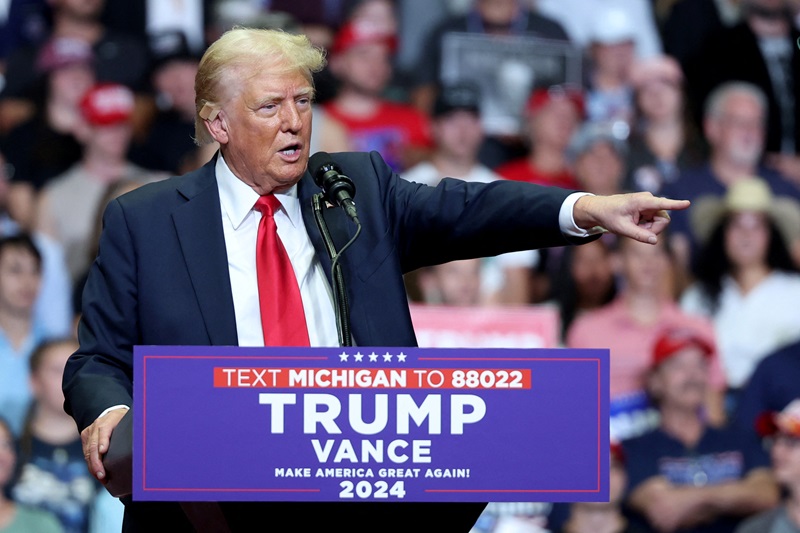That tension reached its peak in mid-July after a failed assassination attempt appeared to significantly boost the Republican candidate’s chances of winning the U.S. presidency and continued its momentum through Monday, even as U.S. President Joe Biden’s withdrawal from the race threw more uncertainty into the market.
LG Energy Solution fell 5 percent to close at 328,500 won ($236) on Monday, while Samsung SDI edged down 4.2 percent to 342,500 won.
Posco Future M, a battery materials company, plummeted 6.03 percent while EcoPro closed down 5 percent.

“Battery stocks traded weak as Trump’s approval rating dropped by a small margin,” Shinhan Securities analyst Lee Jae-won said that day.
The price drops all reflect the fact that Trump’s commitment to cut so-called clean energy projects poses a threat to Korean companies — all of which have already invested billions of dollars into EVs and batteries on the promise of tax incentives, experts say.
Trump has vowed, if elected, to scrap the Inflation Reduction Act (IRA) which currently offers tax credits to Korean battery makers that produce batteries in North American plants. Korean battery-making firms have poured multi-billion dollars into building battery plants in the United States in recent years.
Trump has called the act a “climate scam.”
The nominee also pledged to end the “EV mandate on day one,” a vow to slash Biden’s goal of shifting half of new vehicles on U.S. roads to EVs by 2030. That policy could target Korean automakers like Hyundai Motor and Kia, which are currently constructing a $5.5 billion EV-dedicated factory in Georgia.
Experts say Trump’s pushes for fossil fuels, and against clean energy, could negatively impact some Korean firms.
“Even if Trump wins, he won’t be able to completely scrap the IRA,” said Lee Ho-geun, an automotive engineering professor at Daeduk University.
“However, regardless of which party wins, the size of the incentives will be slashed steeply.”
The cut in incentives will eventually make companies readjust their investment plans.
“Investment sentiment will take a hit, and companies will have to control megascale investments they have made in the U.S. with the expectation of future profit,” said Hwang Kyung-in, a research fellow at the Korea Institute for Industrial Economics and Trade.
“Domestic companies’ share of the U.S. market will also tumble.”
Trump also vowed to impose a 10 percent tariff on all goods, including those coming from Korea.
Korean battery makers have already been hit hard by slowing EV demand and fast-growing Chinese players.
The three largest battery companies — LG Energy Solution, Samsung SDI, and SK On — accounted for 30.3 percent of the world’s battery market in the first quarter, down from 31.7 percent last year, according to data from the SNE Research.
BY SARAH CHEA [chea.sarah@joongang.co.kr]




